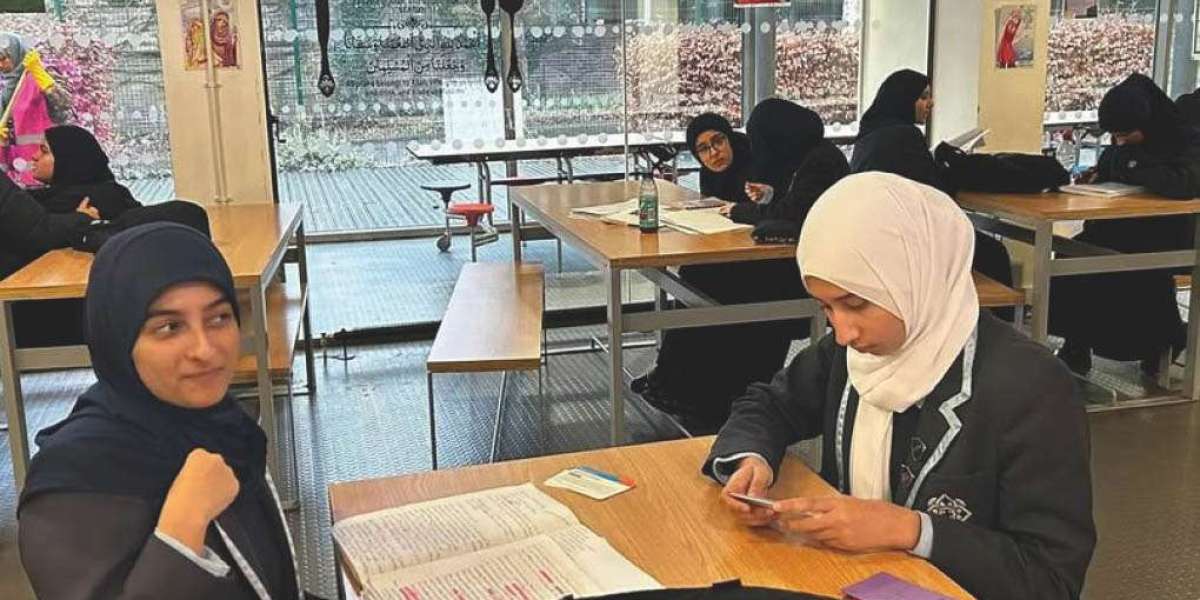Education is the cornerstone of any thriving community. It shapes character, sharpens intellect, and lays the foundation for future success. For Muslim families around the world, finding an educational institution that nurtures both academic growth and spiritual development is of utmost importance. This is where Muslim Public Schools play a vital role. They serve as beacons of faith-based learning — providing children with the tools to excel academically while remaining grounded in Islamic values.
In this comprehensive exploration, we will look at the mission, curriculum, community impact, and holistic approach that define Muslim Public Schools, and how they are helping to build a generation of confident, ethical, and high-achieving individuals.
1. The Mission and Vision of Muslim Public Schools
The central mission of a Muslim Public School is to combine high-quality education with Islamic principles. The vision extends beyond merely academic success; it encompasses moral character, community engagement, and spiritual awareness.
Muslim Public Schools aim to raise students who are not only well-prepared for modern life but who also embody the teachings of Islam — honesty, compassion, discipline, and justice. Their philosophy is deeply rooted in the idea that education is an act of worship (ibadah), and learning is a lifelong duty for every Muslim.
The Prophet Muhammad (peace be upon him) said, “The seeking of knowledge is obligatory for every Muslim.” (Sunan Ibn Majah 224). This hadith forms the cornerstone of the Muslim Public School ethos — where faith and knowledge are not separate pursuits, but complementary paths toward personal and collective betterment.
2. A Blend of Academic and Islamic Education
One of the greatest strengths of Muslim Public Schools lies in their integrated curriculum. While they adhere to national or regional educational standards, they also include robust Islamic studies programs that promote spiritual development.
Students typically study subjects such as:
- Mathematics, Science, and English Language Arts: following national academic frameworks.
- Social Studies and History: exploring not just local or global events, but also the rich contributions of Islamic civilization to science, culture, and art.
- Islamic Studies: focusing on Qur’anic studies, Hadith, Fiqh (jurisprudence), Seerah (the life of the Prophet ﷺ), and Islamic morals.
- Arabic Language: enabling students to understand the Qur’an in its original form.
This dual approach helps Muslim students strengthen their Islamic identity while gaining the skills and knowledge necessary to succeed in competitive academic environments.
3. Character Development and Moral Excellence
Muslim Public Schools prioritize the character development of each student, instilling values such as respect, honesty, kindness, and humility. The emphasis on akhlaq (moral conduct) is woven into every aspect of school life — from classroom interactions to extracurricular activities.
Students are encouraged to emulate the Prophet Muhammad ﷺ in their manners and dealings. Teachers act as mentors, not just instructors, guiding students through both academic and spiritual challenges. The environment promotes modesty, cooperation, and compassion — qualities that remain central to a well-rounded Islamic upbringing.
4. Fostering a Sense of Identity and Belonging
In today’s multicultural world, Muslim children often face challenges related to identity. Muslim Public Schools provide a safe, nurturing environment where students can proudly practice their faith. Daily prayers, Islamic assemblies, and observance of Ramadan create a sense of unity and belonging.
Celebrating Islamic holidays like Eid al-Fitr and Eid al-Adha within the school builds cultural confidence and community spirit. Students learn to appreciate their heritage and understand the value of being part of a global ummah (Muslim community). This sense of belonging is particularly vital in Western societies, where Islamic identity can sometimes feel marginalised.
5. The Role of Qualified Teachers and Islamic Mentors
The success of Muslim Public Schools greatly depends on their teachers — professionals who combine academic expertise with strong Islamic values. Educators at these schools often undergo specialised training to balance faith-based education with modern teaching methodologies.
Teachers in Muslim Public Schools serve as role models who embody integrity and piety. They inspire students not just to learn, but to live Islam in their daily actions. This mentorship approach fosters a lifelong connection to both knowledge and spirituality, ensuring that learning extends beyond the classroom walls.
6. Extracurricular Activities and Community Engagement
A well-rounded education extends beyond textbooks. Muslim Public Schools place strong emphasis on extracurricular activities that develop leadership, teamwork, and creativity.
Students participate in:
- Sports programs that encourage fitness, discipline, and teamwork.
- Debate clubs and public speaking competitions, improving confidence and communication skills.
- Qur’an recitation and memorisation competitions, deepening their connection to the Holy Book.
- Community service projects, which teach social responsibility and compassion for others.
Through these initiatives, students learn the importance of contributing positively to society — a principle deeply embedded in Islamic teachings.
7. Building Partnerships with Families and the Community
Muslim Public Schools actively involve parents and local communities in their educational mission. Open communication between home and school ensures that students receive consistent guidance in both academic and moral matters.
Parent-teacher associations, community iftars, and Islamic awareness events create a strong sense of collaboration. Families are not just spectators in their children’s education — they are active participants, reinforcing the values learned at school within the home environment.
Moreover, the connection between Muslim Public Schools and local mosques strengthens the spiritual and social network surrounding each student. This partnership nurtures an ecosystem of learning, faith, and unity.
8. Technology and Innovation in Education
Modern Muslim Public Schools recognise the importance of preparing students for a fast-changing, technology-driven world. Many have integrated digital tools, smart classrooms, and online resources to enhance learning.
At the same time, these schools ensure that technology is used responsibly, in alignment with Islamic ethics. Students are taught to navigate the digital world with integrity, respect, and mindfulness — learning to balance innovation with moral accountability.
9. Challenges and Opportunities
Like any educational institution, Muslim Public Schools face challenges. Funding, staff recruitment, and maintaining academic standards while upholding Islamic values can be demanding. However, the growing global awareness of the need for inclusive, faith-based education has created new opportunities for expansion and collaboration.
Government partnerships, educational charities, and community-driven initiatives have begun supporting Muslim schools more actively. These collaborations help to bridge the gap between Islamic education and mainstream academic systems, ensuring long-term sustainability and progress.
10. Inspiring the Future: A Generation of Faithful Leaders
The ultimate goal of Muslim Public Schools is to prepare students not only for success in this world but also for righteousness in the Hereafter. Graduates often go on to pursue higher education and professional careers, but what distinguishes them is their moral compass.
They emerge as young men and women who carry their faith with pride — leaders, thinkers, and change-makers who contribute positively to society while remaining true to Islamic values. Their education equips them with the knowledge, empathy, and ethical grounding needed to navigate the challenges of modern life.
Conclusion: The Light of Faith and Knowledge
Muslim Public Schools represent a powerful synthesis of tradition and progress. They demonstrate that academic excellence and religious devotion are not mutually exclusive, but rather complementary pursuits.
By creating environments that nurture intellect, character, and faith, these schools are raising a generation of confident Muslims ready to lead with compassion, justice, and wisdom.
In a world where education often focuses solely on material success, Muslim Public Schools remind us that true education is about more than grades — it is about shaping hearts, enlightening minds, and inspiring souls.
For parents seeking a holistic education that cultivates both faith and intellect, Muslim Public School stands as a model of balance, purpose, and lifelong learning — a place where young Muslims can truly thrive, in this world and the next.













